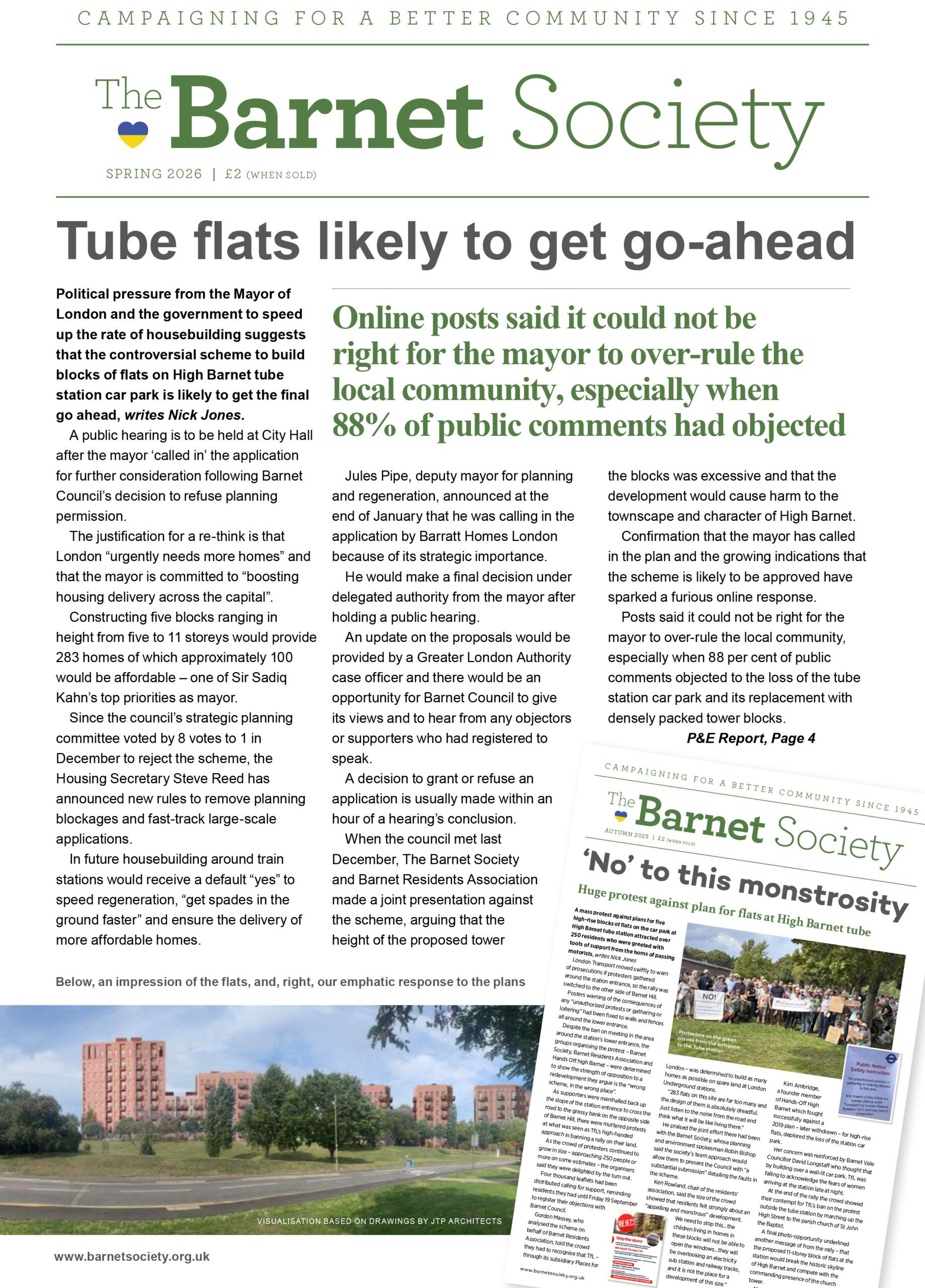Closure of Barnet Food Hub threatens supplies to Chipping Barnet Foodbank and other foodbanks across the borough
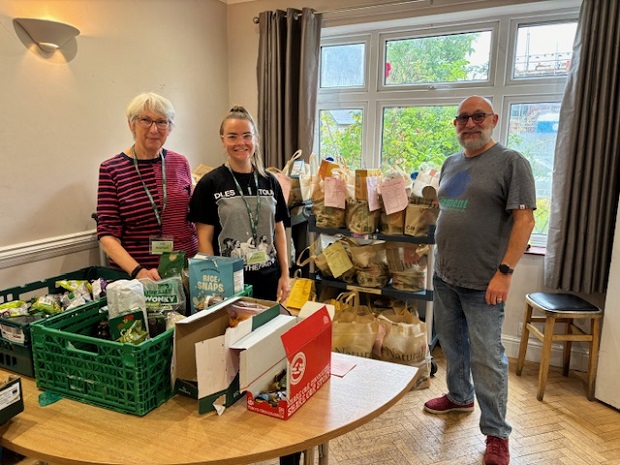
Staff and volunteers at the Chipping Barnet and Dollis Valley foodbanks are being forced to start making arrangements for alternative supplies and deliveries — especially of fresh fruit and vegetables — following Barnet Council’s decision to withdraw funding from the borough’s foodbank hub.
Based in what was formerly East Barnet Library, the Barnet Food Hub co-ordinates the collection and delivery of surplus food and helps with the purchase of essential items such as tins of tomatoes, beans and fish.
Given increasing demand for emergency food parcels at the 17 foodbanks across the borough, volunteers are warning there could be dire consequences because of the council’s decision to close the hub at the end of September.
It is hoped that short-term funding towards the cost of continuing deliveries will help maintain a skeleton distribution network until the end of the year, to help ensure “adequate supplies over the Christmas period”.
But there will no longer be a hub where surplus food can be delivered, sorted, stored and then sent out to the individual foodbanks.
Bob Bevil (above, far right), who is the advocacy and campaigning lead at the Chipping Barnet Foodbank, said volunteers across the borough had been shocked and dismayed by the council’s decision to withdraw funding at such short notice.
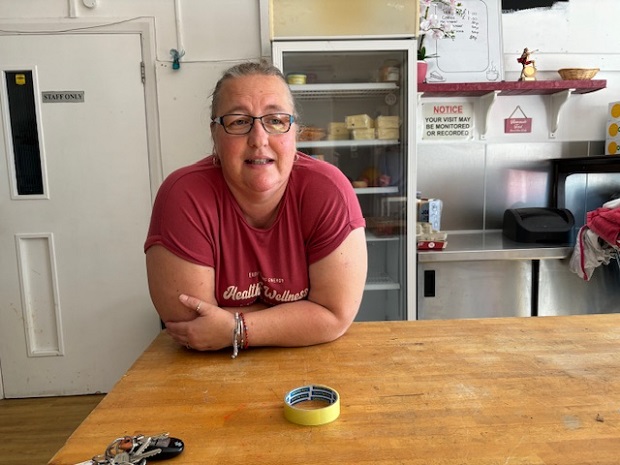
His concern is shared by Sarah Snell (above), manager of the foodbank at the Rainbow Centre in Dollis Valley, who says the closure of the hub could not have come at a worse time with a sharp rise in the number of families seeking help.
The Rainbow Centre is supported by The Felix Project, which redistributes surplus food, but the hub in East Barnet had been an invaluable source of key items such as rice, pasta and canned goods, as well as fruit and vegetables.
The Chipping Barnet Foodbank, which is held on Tuesdays and Saturdays at St Peter’s Roman Catholic Church, Somerset Road, New Barnet, is comparatively well resourced compared with some, but Mr Bevil fears the loss of supplies from the hub at East Barnet will be a devastating blow for some of the smaller foodbanks.
“We understand that the funding – amounting to several hundred thousand pounds a year – was withdrawn because the council overspent last year and is having to cut back.
“What has been so concerning is the lack of consultation.
“We are all trying desperately to see how we can find ways to replace the surplus food which the food hub currently supplies,” said Mr Bevil seen above with volunteers Marion Wellsman (left) and Ella Wood.

The hub for the foodbanks was established with funding from Barnet Council at the height of the covid pandemic when the foodbanks faced a surge in demand.
An area for sorting and storing surplus food was created on the rear ground floor of the former library.
It has become a vital supply line for many of the foodbanks and a vital drop-off point for groups like Community Harvesters who pick surplus apples, pears and other fruit each autumn.
At a meeting of foodbank representatives in early August, Barnet Council officials informed them that the funding for the hub, which had originally been arranged as an emergency measure during the pandemic, could no longer be afforded.
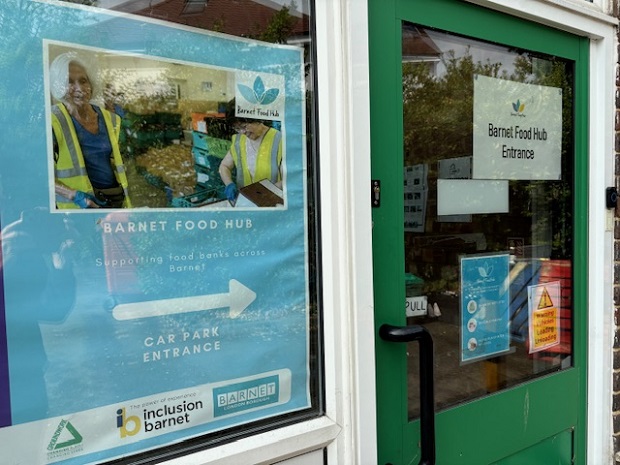
Support in Barnet had continued longer than in some London boroughs, but the council had overspent and could not legally continue to fund expenditure which was for a non-statutory duty.
But without regular deliveries of essential items from the hub, some of the smaller foodbanks fear the worst.
Their representatives and council officials will now see what can be done to establish an alternative distribution network.
Some of the foodbanks say they are already overstretched and are concerned that people who rely on regular parcels of food might find themselves in difficulty.
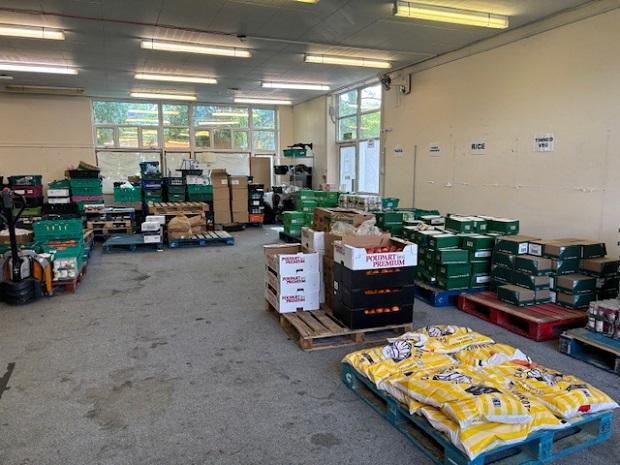
Council officials were criticised for not giving advance warning of the food hub’s closure and for failing to give the foodbank network greater priority.
Unless the council found ways to make other savings so that the support for food provision could continue, one foodbank representative thought there was a danger this might lead to untimely deaths among vulnerable people.
Because of the sheer desperation of people living locally, there was a queue forming outside the Burnt Oak Community Foodbank from 7am ahead of its opening time of 2pm.
Bob Bevil said the experience of the Chipping Barnet Foodbank was that there had been a noticeable increase this year in the number of families they were helping.
In 2023 the foodbank gave out 6,571 food parcels and supported around 140 people a week.
At Dollis Valley, the Rainbow Centre foodbank, which is held on Thursdays, is currently supporting around 85 families a week, about 20 more than a year ago — and a massive increase on the 15 families who were helped when Sarah Snell started the foodbank seven years ago.
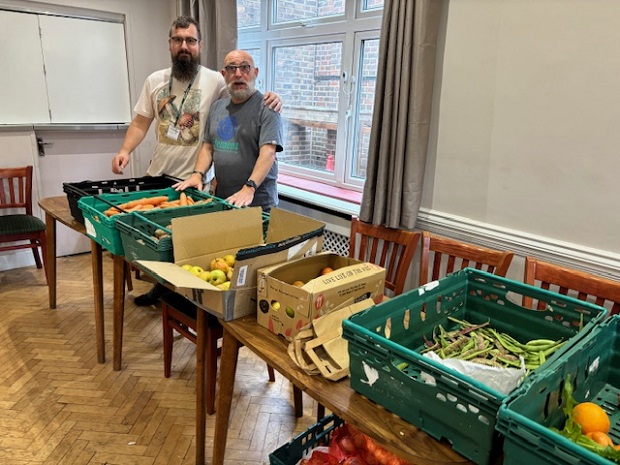
Mr Bevil – seen above with volunteer Frank (left) at the fruit and vegetable table – said Chipping Barnet relied on the food hub for a regular supply of fresh produce and this would be hard to replace unless an alternative distribution network could be established.
“Fresh vegetables and fruit are so important for health and well being and the food hub has been the central point for collecting and storing surplus produce which is then distributed or collected by the foodbanks.”
Groups which worked with the food hub such as the Felix Project and Volunteers on Wheels intend to discuss possibilities for establishing a new distribution network in co-operation with the Barnet Food Partnership.
“There will be a real push to see what can be done to continue supporting the foodbanks but what has happened with the closure of the food hub is a real travesty,” said Mr Bevil.
He had been in touch with new MP for Chipping Barnet, Dan Tomlinson, who had said he would make representations to Barnet Council.
In announcing the withdrawal of funding, officials said they recognised the contribution foodbanks are making during the cost-of-living crisis.
Barnet Council remained committed to reducing poverty across the borough, but they would have to “move to another model in the future” for the best way of addressing “food issues”.

